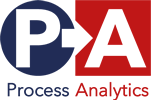Traditional process mining research focuses on the analysis of abstract objects (often referred to as cases) going through a system. These objects leave events which are typically considered to be the primary carriers of data. However, in many systems, the objects going through it are the factual carrier of data which changes over time. Think of a patient in a hospital. An event may record the result of a blood test, but it is the patient’s blood that was drawn. The event itself is merely a record of a value of the patient’s glucose level at a specific point in time.
In traditional administrative processes, this object cannot modify itself, e.g. an insurance claim cannot make decisions by itself. However, in more and more cases, objects can make independent decisions, outside of the control of an information system. Patients can “decide” to change their glucose levels and a student can decide (not) to study for a test. With artificial intelligence, more and more everyday objects can make decisions independent of the system controlling them (printers can decide to clean their print heads and fridges can decide to order products).
The process analytics group is looking for an assistant professor interested in process mining (including sub-topics such as conformance checking or process enhancement) where the case is the primary object of study. For example, in educational process mining, there is no model to describe the behavior of students, but trends in their behavior can be seen and these trends may be used to influence their behavior. The assistant professor will support the Process Analytics group in teaching Bachelor and Master courses in process mining, data analytics, and various challenge-based, project-oriented courses.
This position is part of a larger hiring round, to apply, please click on APPLY NOW on the vacancy page. More information about the department we are part of and the other groups therein can be found here.
